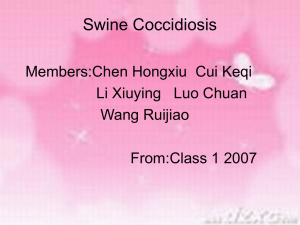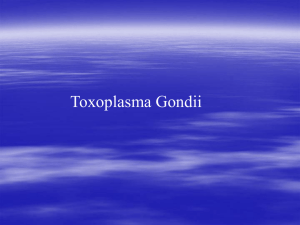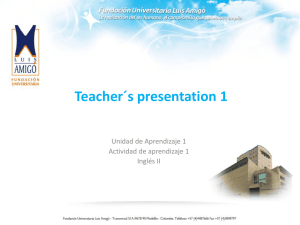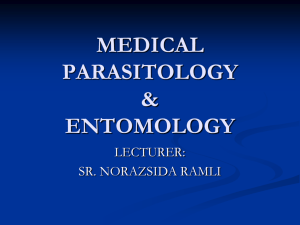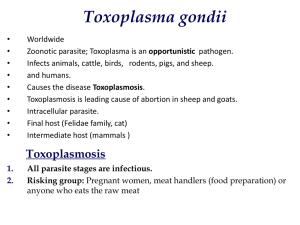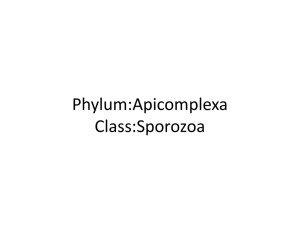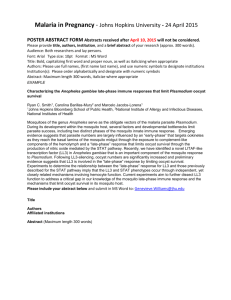Toxoplasmosis
advertisement
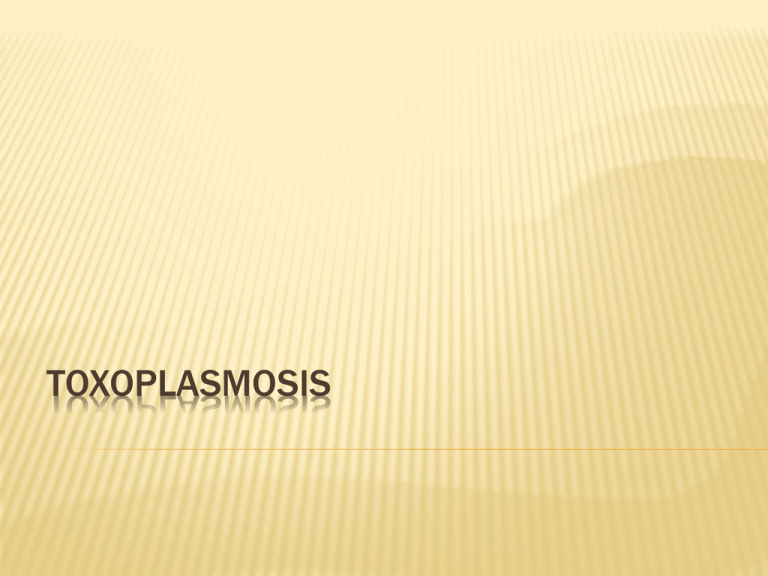
TOXOPLASMOSIS Definition: contagious disease of all worm blooded animal even human caused by toxoplasma and characterized by encephalitis, pneumonia and neonatal mortalities Etiology: T. gondii attack all organ especially reticulo-endothelial and central nervous system Epidemiology 1. Distribution: wide distributed, present in Egypt 2. Species affected: Cat consider as final host and other spp. (dog, ruminants, equine, bird, rabbits and human) act as intermediate host 3. Transmission: cat infect by eating meat contain infective oocyst or by ingestion of cont. food by sporulated oocyst. Intermediate host infected by ingestion of cont. food by sporulated oocyst. LIFE CYCLE Tachyzoite invade any cell in body form tissue cyst in CNS, muscles and visceral organ CLINICAL SIGNS Dog: Occur mostly in dog less than one year Localised in resp., neuromuscular, gasterintestinal Characterised by fever, tonsilitis, diarrhea, vomiting In old dog signs associated with neural and muscular affection as tremors, ataxia, paralysis and stiffness, also Ocular lesion as retinitis and uveitis 1. Cat Prenatal toxoplasmosis Still born kitten, kitten have enlarged abdomen because of enlarged live and ascites and encephalitis 2. Postnetal toxoplasmosis Presistent or intermittent fever, dyspnea Hepatitis Diarrhea, vomiting Stiffness and lamness due to CNS involvement Retinitis and uveitis DIAGNOSIS Field diagnosis 1. History 2. Clinical signs 3. Epidemiology 1. Laboratory diagnosis Serological test: CFT, hemagglutination test, sabin field man test 2. Fecal examination: cat may be serological positive and fecal ex. negative because of oocyst shed during 1-2 w 3. Cytological examination: Tachyzoites detect in various body fluid 4. CSF analysis: Increase protein and leukocytes 5. Histopathology Granulomatous tissue in brain, lung Toxoplasma isolation Mice inoculation by Tissue emulsion of brain, lung or body fluid or clean sporulated oocyst I/P or I/C Oocyst detect in brain at 4-6 w post infection and tachyzoite in peritoneal fluid at 4-6w post infection TREATMENT Clindamycine 10-20 mg/kg for dog 12.5-25 mg/kg for cat sulfonamide CONTROL 1. 2. 3. 4. Avoid contact between cat and farm animal Avoid contam. of food by cat`s feces Carcass of infected animal should be destroyed Feeding of cat commercial processed food




